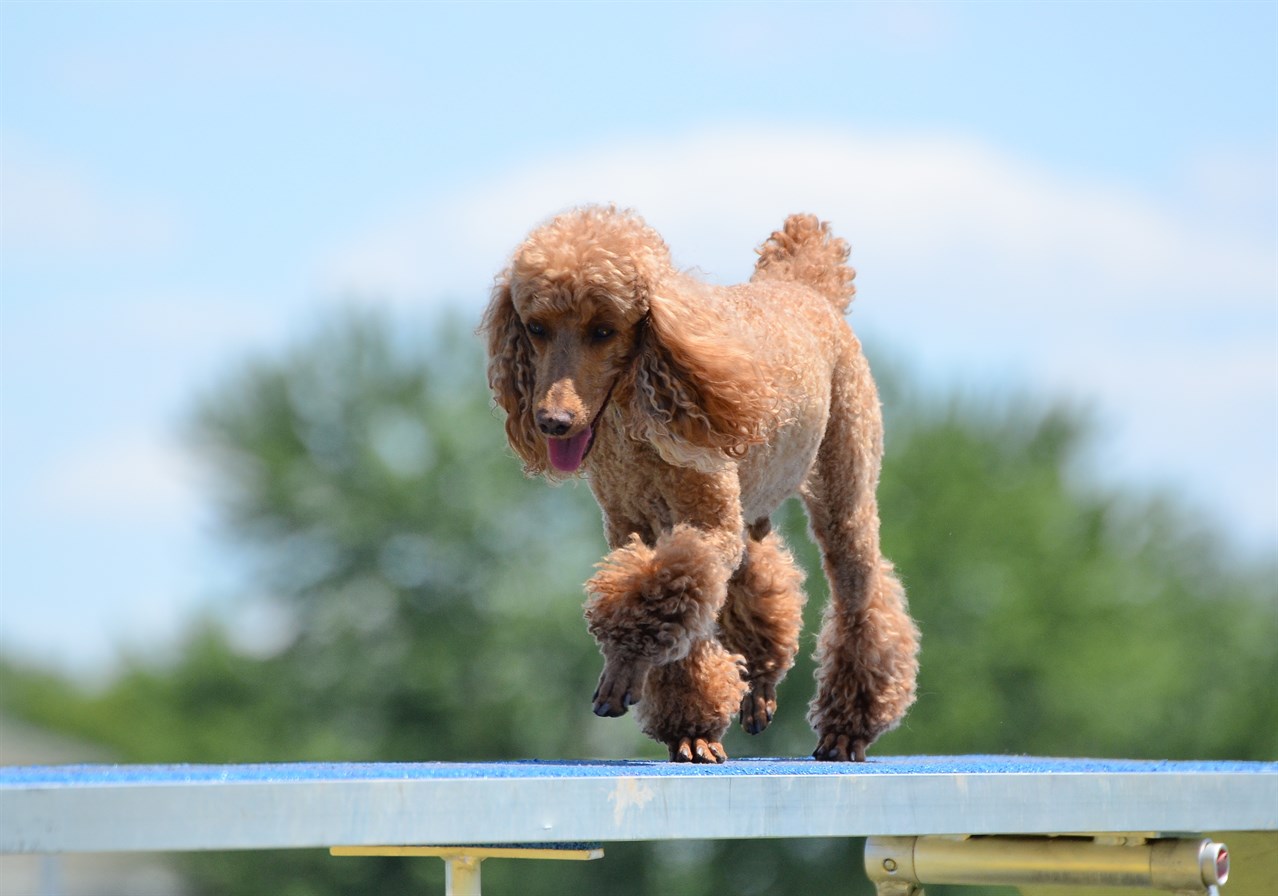Downsides and Disadvantages of Miniature Poodle Ownership

While Miniature Poodles are beloved for their many positive traits, it's essential to consider potential downsides or disadvantages of owning this breed. Here are some aspects to be aware of.
Grooming Requirements
- High Maintenance Coat: Miniature Poodles have a dense, curly coat that requires regular grooming. This breed's coat is non-shedding, which can be a benefit for allergy sufferers, but it means that their hair can mat and tangle easily if not properly cared for.
- Professional Grooming Costs: Many Miniature Poodle owners opt for professional grooming, which can be costly and time-consuming. Regular grooming appointments are essential to keep their coat in good condition.
Exercise Needs
- Demanding Energy Levels: Miniature Poodles are active dogs with high energy levels. They require daily exercise and mental stimulation. Failing to provide sufficient exercise can lead to behaviour problems.
- Boredom and Destructiveness: When not adequately exercised, Miniature Poodles may resort to destructive behaviours, such as chewing or digging, to alleviate boredom.
Social Needs
- Separation Anxiety: Miniature Poodles are known for forming strong bonds with their owners. They can experience separation anxiety when left alone for extended periods, which can result in excessive barking or destructive behaviour.
- Need for Human Interaction: Miniature Poodles thrive on human interaction and can become anxious or unhappy without regular companionship.
Health Concerns
- Genetic Health Issues: Like many purebred dogs, Miniature Poodles are prone to certain genetic health issues, including hip dysplasia, progressive retinal atrophy, and patellar luxation. Responsible breeding practises can help mitigate these risks.
- Vulnerability to Temperature Extremes: Their small size and thin coat make Miniature Poodles more sensitive to extreme temperatures. They may need extra care in very hot or cold climates.
Training and Socialisation
- Training Challenges: While intelligent, Miniature Poodles can be strong-willed and may require consistent, positive reinforcement-based training to overcome behavioural challenges.
- Socialisation Needs: Early and ongoing socialisation is crucial to prevent fearfulness or aggression towards other dogs and people.
Potential Allergies
- Allergen Production: Although they are considered hypoallergenic due to their low-shedding coat, Miniature Poodles can still produce allergenic proteins in their saliva, urine, and skin. Some individuals with allergies may still react to them.
Expense
- Cost of Ownership: Owning a Miniature Poodle can be costly due to grooming, veterinary care, high-quality food, and other expenses. Potential owners should be prepared for these financial responsibilities.
In conclusion, while Miniature Poodles are charming, intelligent, and affectionate dogs, they do come with certain disadvantages, including grooming demands, exercise needs, socialisation requirements, and potential health issues. Prospective owners should carefully consider their ability to meet these challenges and provide a loving and stimulating environment for their Miniature Poodle.
Poodle (Miniature) puppies for sale
- Find Poodle (Miniature) puppies for sale in ACT
- Find Poodle (Miniature) puppies for sale in NSW
- Find Poodle (Miniature) puppies for sale in NT
- Find Poodle (Miniature) puppies for sale in QLD
- Find Poodle (Miniature) puppies for sale in SA
- Find Poodle (Miniature) puppies for sale in TAS
- Find Poodle (Miniature) puppies for sale in VIC
- Find Poodle (Miniature) puppies for sale in WA